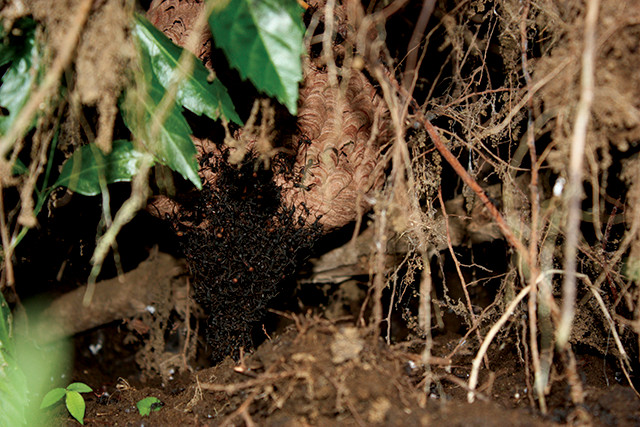
by Mary Caperton Morton Tuesday, March 22, 2016

According to a recent study, underground species of army ants are much less tolerant of high temperatures than aboveground ants. Credit: Kaitlin Baudier.
Army ants, which move in swarms and show their prey little mercy, are some of the most ferocious insects in the animal kingdom, but a recent study reveals a weakness in some underground species: warm temperatures.
Certain species of army ants adapted to living mostly below the surface apparently do not share the same thermal tolerance as their aboveground relatives, which must cope with changing daily and seasonal temperatures, according to the recent study published in the Journal of Animal Ecology.
“A few inches of soil can make a big difference in temperature,” said lead author Kaitlin Baudier of Drexel University in Philadelphia, in a statement. To assess the microhabitat preferences of both aboveground and underground species of army ants, Baudier and colleagues collected samples of nine different species of Costa Rican army ants. Subjecting them to a range of thermal conditions in simulated habitats, they found that those species that spent more time above ground had higher heat tolerances than those that lived primarily underground, where temperature swings are typically smaller.
The study highlights a shortcoming of models looking at how ecologies will shift with climate change, which could impact the models’ accuracy, Baudier and colleagues wrote. Models often include predictions of how animal species will adapt to different geographic ranges or to new latitudes or elevations when temperatures rise, but most do not look underground, where ants and other organisms form the base of soil ecology and nutrient cycles.
© 2008-2021. All rights reserved. Any copying, redistribution or retransmission of any of the contents of this service without the expressed written permission of the American Geosciences Institute is expressly prohibited. Click here for all copyright requests.